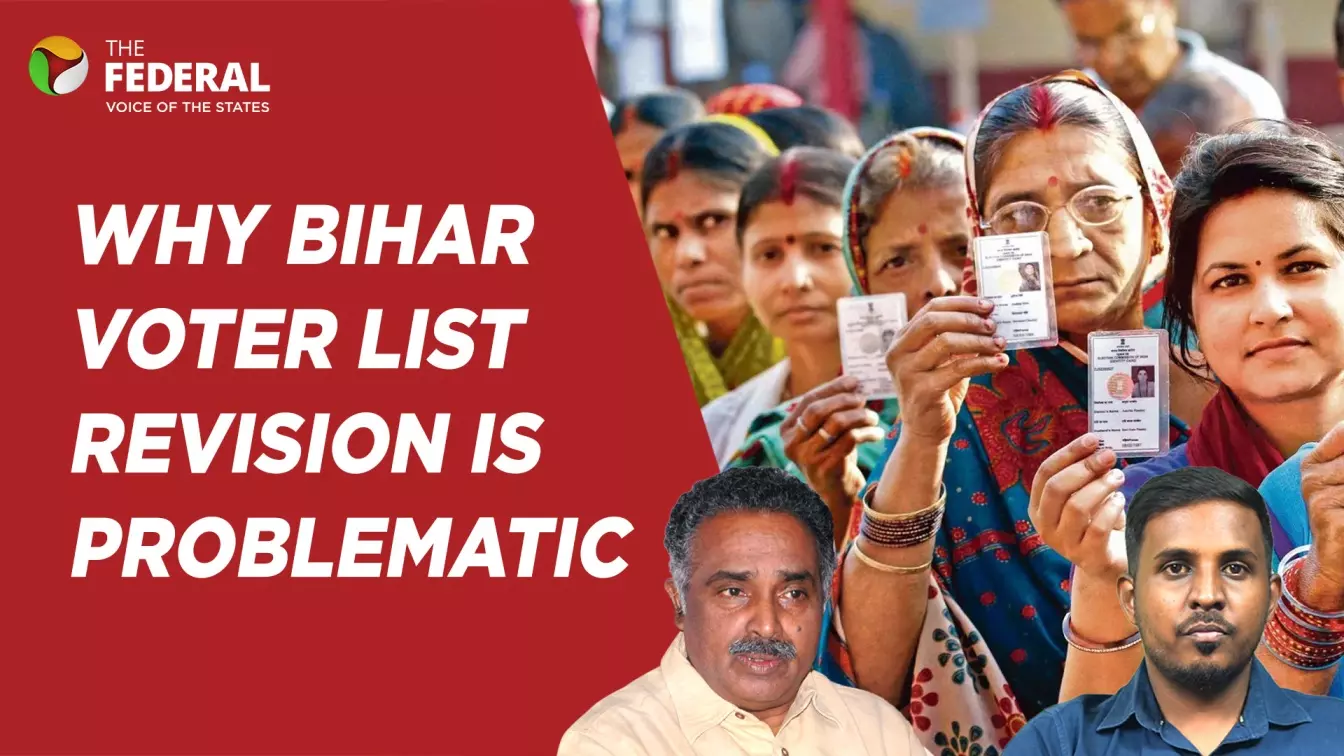
EC’s Bihar SIR inconsistent with law, raises many questions: PDT Achary
There was no urgency about EC’s electoral roll revision in Bihar; timing is inconsistent with law and raises serious questions about intent, says PDT Achary

As the Election Commission begins a special intensive revision (SIR) of the voter list in Bihar, opposition parties have voiced concerns about potential disenfranchisement, given the timing of the exercise. With the Supreme Court giving the EC a go-ahead, PDT Achary, former secretary general of the Lok Sabha, delves into the legal and constitutional concerns surrounding the exercise in this interview with The Federal.
Does the Election Commission have the legal authority to carry out the SIR in Bihar?
The Election Commission must operate within the framework of the law. While Article 324 of the Constitution gives the EC wide-ranging powers in matters related to elections, the Supreme Court has clarified that where the law exists, the EC must follow it. The Representation of the People Act, 1950, specifically Section 21, governs electoral roll preparation and revision.
The law mandates that such revisions must take place on January 1, the qualifying date. If no revision happens, the existing electoral roll remains valid. There is also a provision for special revision in a particular constituency or part thereof, but not across an entire state, and such action must be justified with clear reasons.
What the EC is calling a "special intensive revision" doesn’t appear in the statute. It seems to be a technical term or abbreviation that lacks legal standing. More importantly, the EC has fixed July 1, 2025, as the qualifying date, which is inconsistent with the law.
Also read: SC offers some relief to both EC and petitioners in Bihar SIR case
Is there any urgency that justifies this timing?
There doesn’t seem to be any compelling urgency. The 2024 general election was conducted using the existing voter roll. What has changed so drastically since then to warrant this special revision? If a revision was necessary, it should have been done in January, following legal provisions. Fixing July 1 as a qualifying date is arbitrary and deviates from the law.
Conducting such a massive revision just months before the state elections creates confusion and logistical hurdles. There's a valid fear that the process won’t be completed in time, which adds to suspicions around the intent.
Some reports say Aadhaar is being accepted in urban areas but rejected in rural ones. Shouldn’t documentation norms be uniform?
Absolutely. When Aadhaar was introduced, it was positioned as a single, comprehensive identity document. It's used for banking, government benefits, and other essential services. If Aadhaar isn’t accepted as proof for voter registration in some areas, it raises serious questions.
There must be uniform documentation standards across all regions. Selective application of rules only fuels doubts about the fairness of the process.
Also read: SC allows Bihar electoral roll revision, asks EC to consider these 3 documents
In areas like Seemanchal, if documents like birth certificates or parental ID aren’t available, are people at risk of being excluded?
Yes, that is a serious concern. There is a risk that people unable to provide certain documents may be excluded from the electoral roll. This is reminiscent of the National Register of Citizens (NRC) exercise in Assam, which led to widespread anxiety.
It’s important to note that deciding citizenship is not the Election Commission’s job. That falls under the purview of the Ministry of Home Affairs. The EC is mandated only to prepare and revise electoral rolls.
The electoral registration rules say that information must be provided “to the best of your ability”. This is crucial. For instance, if someone cannot provide an exact date of birth for a parent, but offers a general year and location, that should suffice. Denying enrolment in such cases goes against the spirit of the law.
Also read: EC launches #ECIFactCheck to counter Opposition’s Bihar SIR claims
If disenfranchisement happens on a large scale, especially in areas dominated by particular communities or castes, what does it mean for the EC’s credibility?
It severely undermines the EC’s core responsibility, which is to include all eligible voters, not to exclude them. The EC’s primary role is to ensure that every citizen above 18 is on the voter list.
If the EC deviates from this mandate and engages in large-scale exclusions, especially in sensitive regions, it raises questions about its impartiality and credibility. Fair elections begin with fair and inclusive voter lists.
(The content above has been generated using a fine-tuned AI model. To ensure accuracy, quality, and editorial integrity, we employ a Human-In-The-Loop (HITL) process. While AI assists in creating the initial draft, our experienced editorial team carefully reviews, edits, and refines the content before publication. At The Federal, we combine the efficiency of AI with the expertise of human editors to deliver reliable and insightful journalism.)

